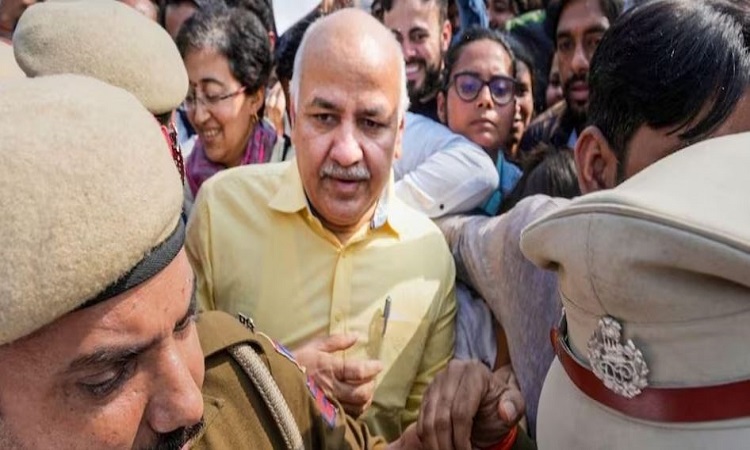The Supreme Court questioned why the Enforcement Directorate hasn’t yet accused the AAP in the liquor policy scam despite its claim that the party received Rs 100 crore in alleged kickbacks.
During a bail hearing for Manish Sisodia, the former Deputy Chief-Minister arrested in connection with the Delhi-liquor-policy case in February. The Supreme Court clarified its intent in an inquiry to the Enforcement Directorate. The inquiry aimed not to accuse any political party.
The court questioned why the Enforcement Directorate hadn’t implicated the Aam Aadmi Party (AAP) despite alleging Rs 100 crore in kickbacks related to the liquor policy scam. Additional Solicitor General SV Raju assured that the agency would take action based on evidence. A detailed agency response was expected soon.
The Enforcement-Directorate believed it had identified a money trail that connected AAP to the case, indicating that the party had used the funds for election campaigns. The agency was contemplating seeking legal opinions to potentially accuse the party.
The court also raised a legal question about its ability to examine cabinet notes, specifically Delhi government notes on the liquor policy’s formation, in court. The court referenced specific Constitution bench judgments regarding the examination of cabinet notes. It questioned whether these judgments applied to Delhi, considering its Union Territory status.
The liquor policy case centered on a 2021 policy, since scrapped, allowing private individuals to operate liquor stores. The Delhi government reported a substantial revenue increase resulting from the policy. Controversy emerged over allegations that Mr. Sisodia manipulated or violated rules to grant liquor licenses.
The Enforcement Directorate expanded its investigation to implicate others, including AAP MP Sanjay Singh.
In April, Delhi Chief Minister Arvind Kejriwal faced nine hours of questioning by the CBI. Kejriwal consistently denied all allegations and emphasized the lack of evidence despite extensive investigations.
In summary, the Supreme Court sought clarification on why the Aam Aadmi Party(AAP) hadn’t been accused in the Delhi-liquor-policy case. It emphasized that its inquiry posed a legal question and did not constitute an accusation against any political party. The case involved allegations of kickbacks and policy manipulation, affecting a policy allowing private liquor store operation in Delhi, leading to arrests and investigations involving prominent AAP members.
Also Read : IT raids at 40 premises linked to DMK MP S Jagathrakshakan











More Stories
Kedarnath Helicopter Crash: ‘हेलिकॉप्टर थोड़ा मुड़ा, पीछे की तरफ गया और फिर…’, सामने आया हादसे का असल कारण
Pune bridge collapse: Congress demands accountability, calls for questions to be asked of those in power
Kareena Kapoor, Saif Ali Khan rushed to be by Karisma Kapoor and her kids’ side at 2am after Sunjay Kapur’s death news